Looking to secure a partnership with a reliable media supplier? Crafting the right contract offer is crucial in ensuring a mutually beneficial relationship. In this article, we'll explore essential elements to include in your letter, from outlining clear expectations to specifying deliverables and deadlines. So, let's dive in and set the stage for a successful collaborationâyou won't want to miss the details!

Clear identification of parties involved.
A media supplier contract offer requires precise identification of the parties involved to ensure clarity and accountability. The first party is typically the media supplier, which may include a company name such as "XYZ Media Solutions, LLC," registered in the state of California. The second party is the client, which might be "ABC Marketing Agency, Inc.," based in New York City. Including the contact details, such as mailing addresses, phone numbers, and emails of both parties, ensures smooth communication. Additionally, specifying the responsible representatives, like "John Doe, Principal at XYZ Media Solutions" and "Jane Smith, Director at ABC Marketing Agency," clarifies who is authorized to negotiate and finalize the contract. These details provide a solid foundation for the contractual relationship and mitigate potential misunderstandings.
Detailed scope of services and deliverables.
A comprehensive media supplier contract should outline essential elements such as service scope, deliverables, and expectations. Key components, including the type of media (print, digital, broadcast), should be distinctly defined. Specific deliverables, like the number of advertisement placements, promotional materials (banners, brochures, social media content), and timelines (monthly, quarterly), must be included to ensure clarity. Additionally, performance metrics, such as reach (audience numbers), engagement rates (clicks, shares), and reporting frequency (weekly reports), are crucial for measuring success. Payment terms (fixed fee or commission), confidentiality clauses (protection of proprietary information), and revision processes (number of edits allowed) should also be clearly articulated. This structured approach promotes transparency and establishes mutual understanding between the media supplier and the contracting entity.
Terms of payment and invoicing details.
A media supplier contract offer typically includes clear terms of payment and invoicing details that clarify financial responsibilities. Payments may be structured with specific milestones, such as 30% due upon contract signing, followed by incremental payments at each phase of project completion, culminating in the remaining balance due upon final delivery. Payment terms could specify net 30 days from the receipt of invoices, which are required to detail services rendered, dates, and any applicable taxes or discounts. Invoicing may need to be sent electronically and may stipulate a specific invoice format (like PDF) along with the inclusion of purchase order numbers for efficient processing. Clear communication regarding late payment penalties, such as a percentage increase after the due date, may also be outlined. Proper documentation and a dedicated invoicing email address for submissions can ensure a streamlined financial transaction process.
Conditions for termination and renewal.
The conditions for termination and renewal of a media supply agreement typically outline the specific scenarios under which either party may terminate the contract prematurely or the process for extending the contract. Generally, termination may occur when one party fails to comply with agreed-upon terms, such as delivery schedules, quality standards, or payment obligations. A specified notice period, often 30 or 60 days, is usually required for termination notice, ensuring both parties have time to respond. For renewal, automatic renewal clauses may apply unless one party provides written notice of intent not to renew, allowing for negotiation of new terms. Renewal notifications, including deadlines and renewal duration specifics, help maintain clear communication and manage expectations for future collaborations.
Confidentiality and intellectual property rights.
A comprehensive media supplier contract must include confidentiality and intellectual property rights clauses to protect sensitive information and creative assets. Confidentiality provisions should specify the obligation of both parties to safeguard proprietary data (e.g., client lists, marketing strategies) from unauthorized disclosure. Duration of confidentiality obligations is typically outlined, often lasting for three to five years after the contract termination. Intellectual property rights clauses must clarify the ownership of creative works (such as logos, advertisements, and multimedia content) produced during the contract period. This clause often stipulates that all intellectual property generated belongs to the client, while the supplier may retain rights to use certain materials for portfolio purposes. Legal provisions should include dispute resolution mechanisms and governing law, ensuring compliance with state or federal intellectual property laws. Clarity in these areas promotes a secure working relationship and protects both parties' interests.

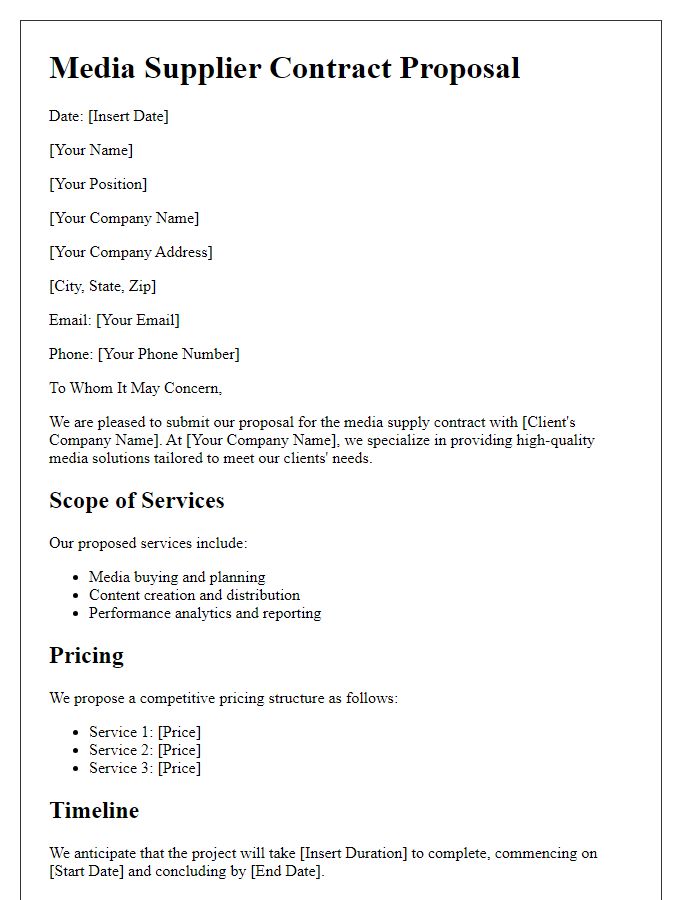
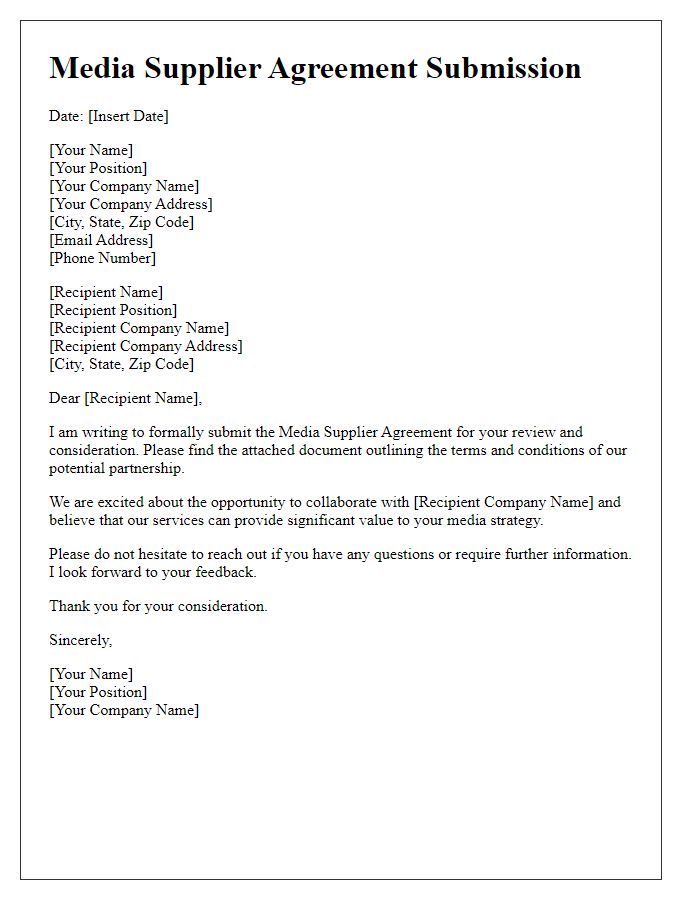
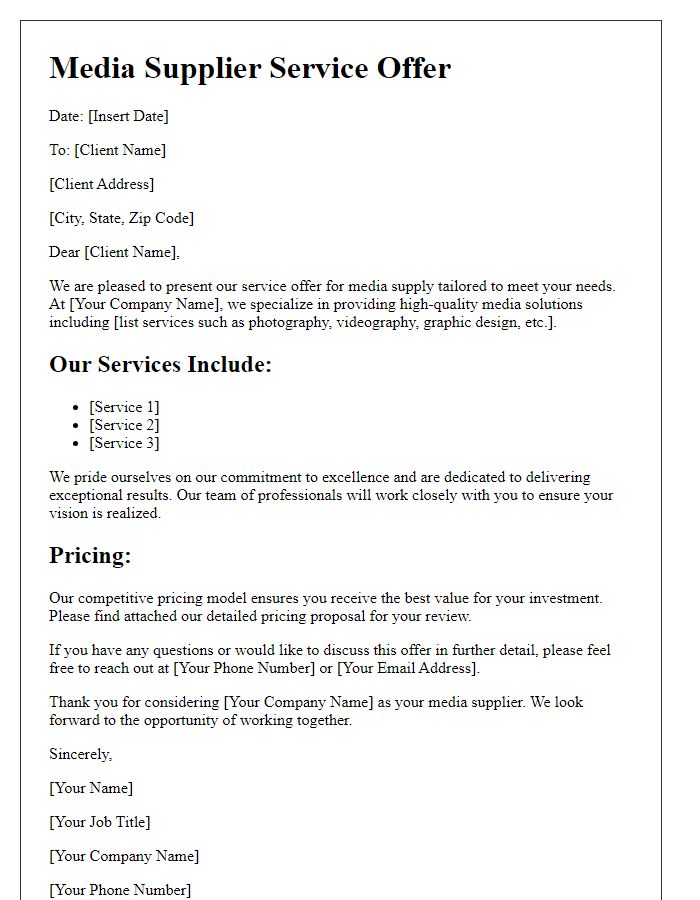
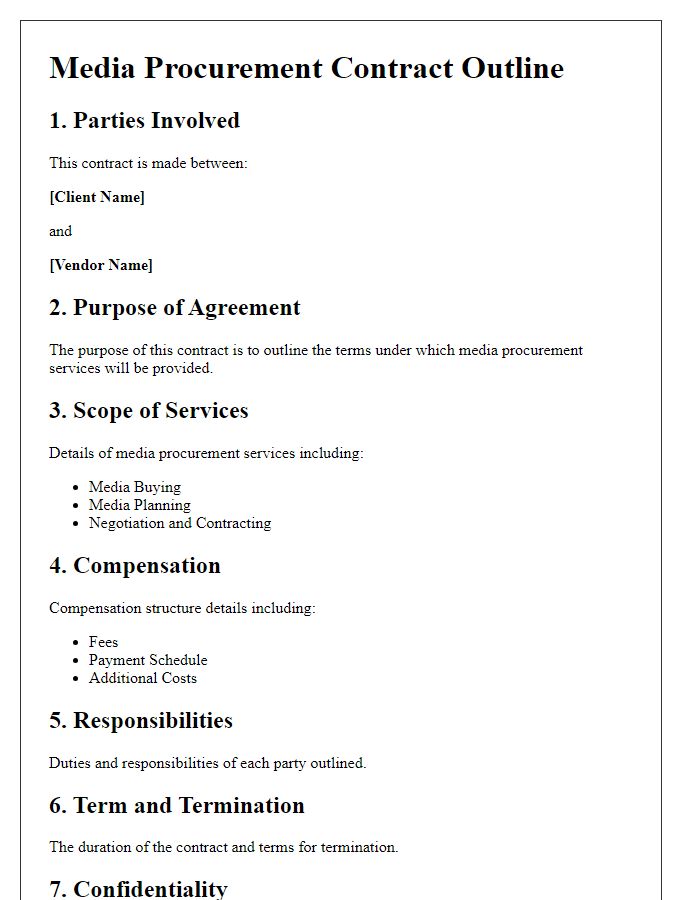
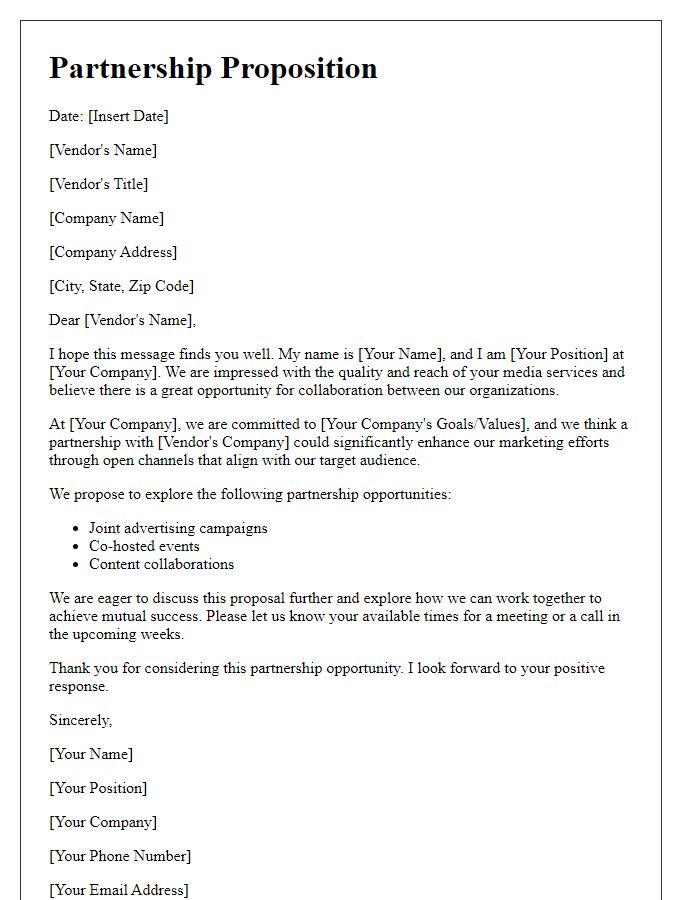
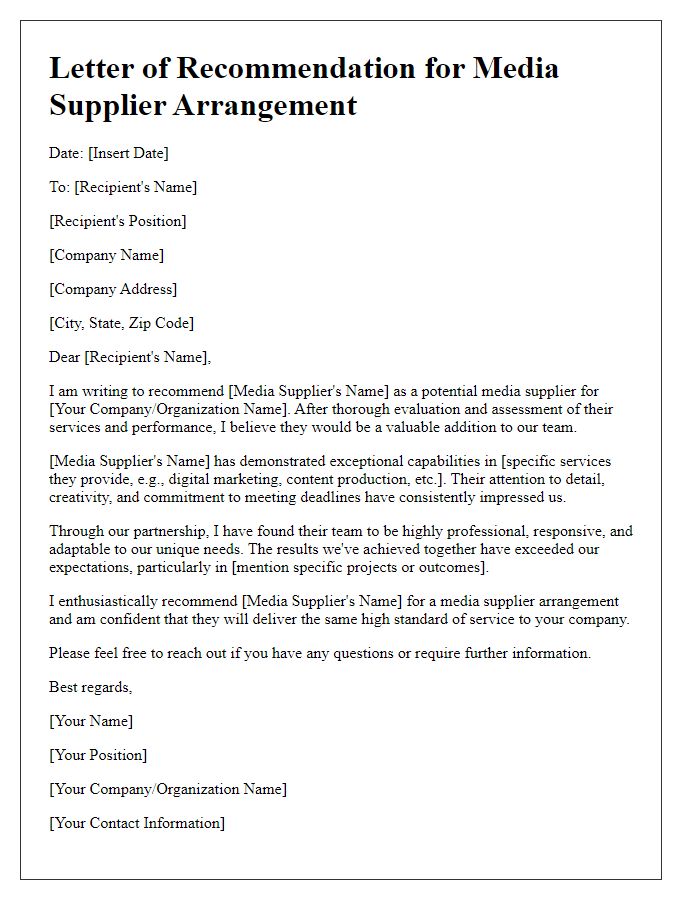
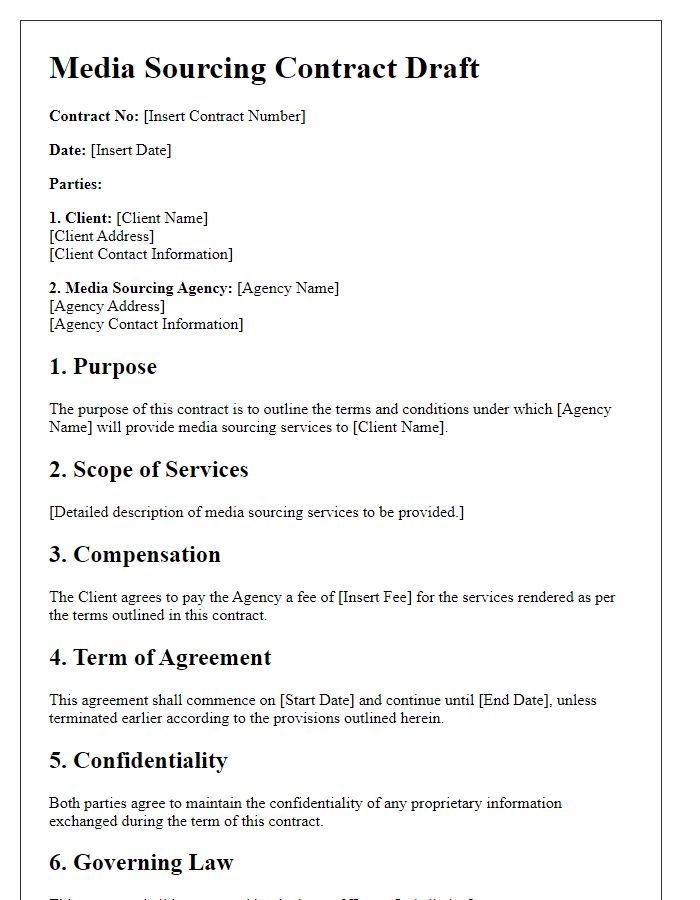
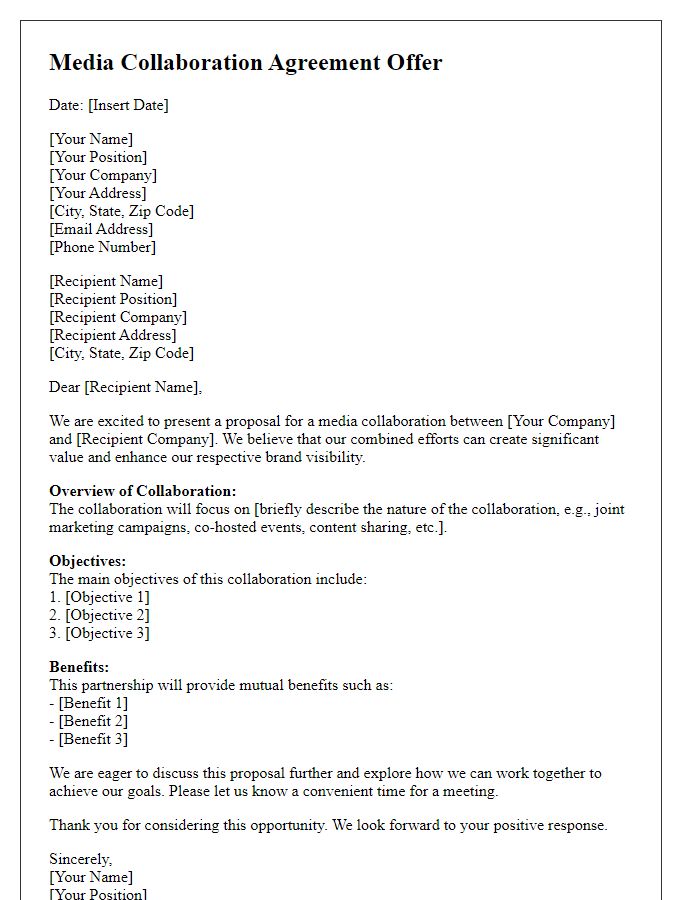
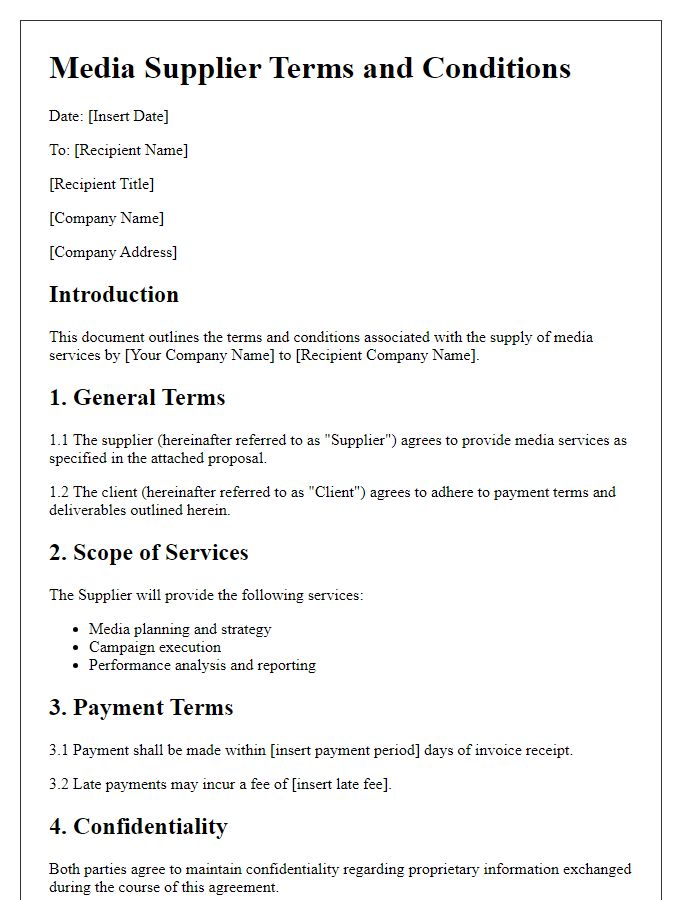
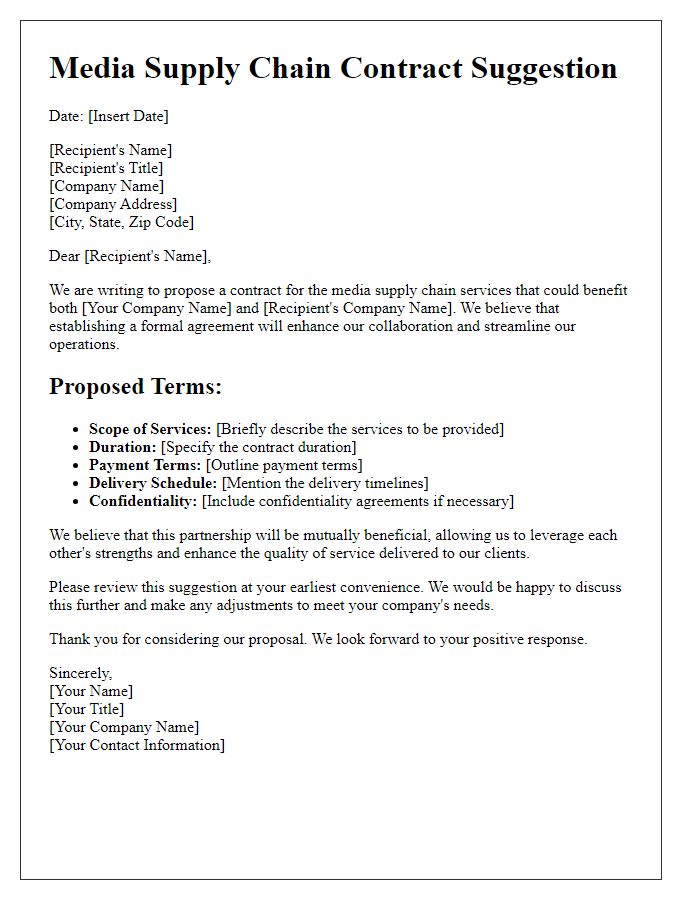


Comments